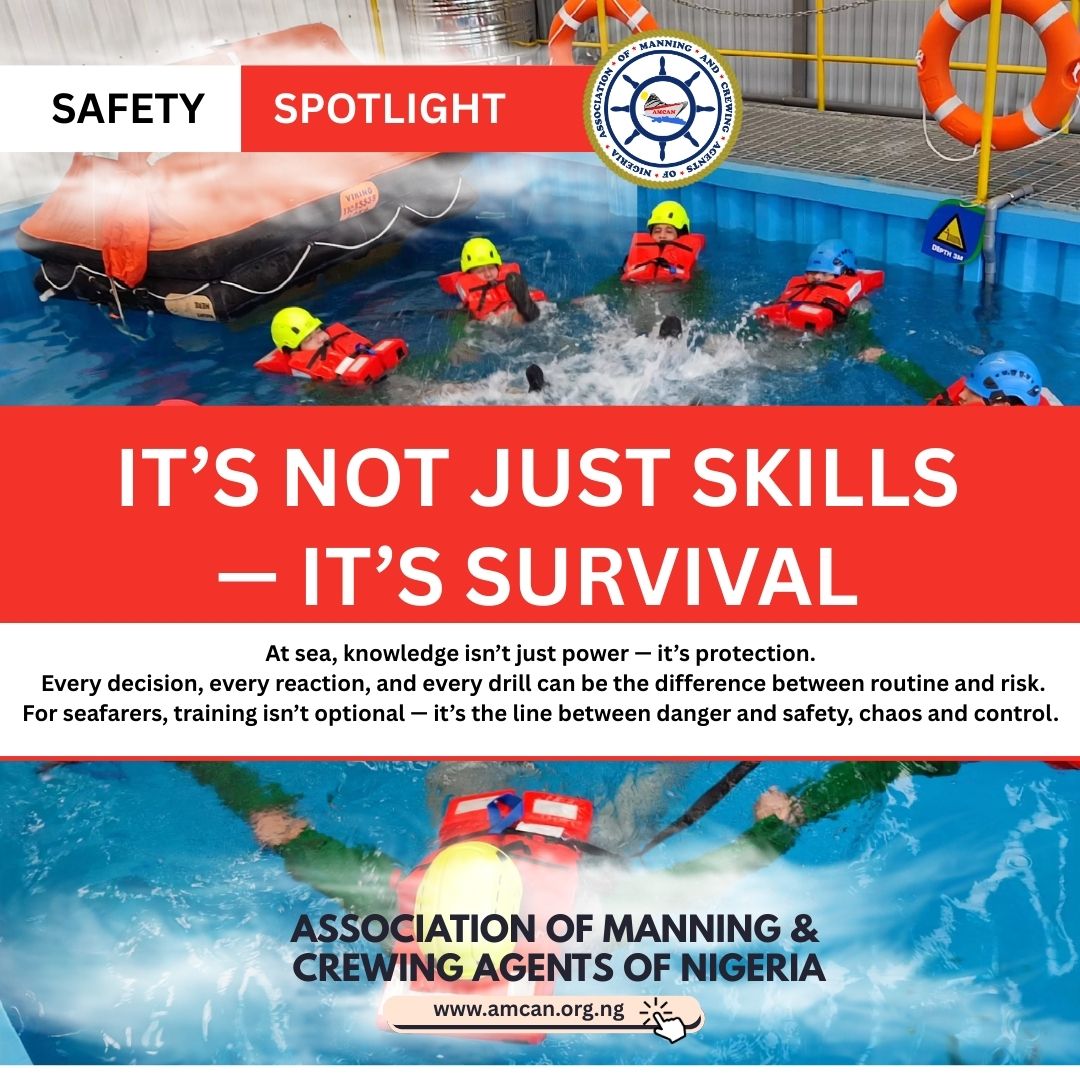At sea, the stakes are inherently high. Beyond the vastness of the ocean and the unpredictable forces of nature, the human element remains the most critical factor in maritime safety. Knowledge isn’t merely power; it is, quite literally, protection. Every decision made on deck, every swift reaction to an unforeseen challenge, and every meticulously practiced drill can be the definitive factor between a routine voyage and a catastrophic incident. For seafarers, who navigate some of the world's most challenging environments, training transcends being a mere requirement; it is the fundamental line distinguishing danger from safety, and chaos from control. It equips them not just with technical proficiency but with the foresight, resilience, and adaptability essential for survival and operational excellence in an unforgiving domain.
A DEEPER DIVE INTO MARIRTIME COMPETENCE
- A Properly Trained Crew Prevents Accidents: The Human Factor in Safety
Statistics consistently highlight human error as the predominant cause of maritime accidents. Reports indicate that human factors contribute to a staggering 75% to 96% of all marine casualties [1]. These errors are often not malicious but stem from inadequate training, fatigue, poor decision-making, or a lack of situational awareness. For instance, a crew well-versed in proper cargo loading and securing procedures can prevent dangerous shifts that lead to capsizing or structural damage. Similarly, proficient navigation and watchkeeping skills, honed through rigorous training, significantly reduce the risk of collisions or groundings, which can have devastating environmental and economic consequences. The International Maritime Organization (IMO) emphasizes the critical role of human element in maritime safety, underscoring that effective training is the cornerstone of accident prevention.
- Emergency Response Skills Save Lives: Preparedness in Crisis
In the volatile maritime environment, emergencies can escalate rapidly. Fires, abandon ship scenarios, man overboard incidents, or medical emergencies demand immediate, coordinated, and effective responses. Comprehensive emergency response training, including regular drills and simulations, is paramount. For example, a well-drilled fire team can contain a blaze before it engulfs the vessel, saving lives and preventing total loss. Similarly, effective man overboard recovery procedures, practiced until they are second nature, drastically increase the chances of survival for someone in the water. The ability to administer first aid or advanced medical care in remote maritime settings can be the difference between life and death, especially when professional medical assistance is hours or days away. These skills are not theoretical; they are practical, life-saving competencies that transform potential tragedies into successful resolutions.
- Mental Resilience Sustains Long Voyages: Beyond the Physical Demands
Life at sea, particularly on long voyages, presents unique psychological challenges. Isolation, confinement, prolonged periods away from family, and the inherent dangers of the profession can take a significant toll on a seafarer's mental well-being. Training in mental resilience, stress management, and peer support is increasingly recognized as vital. Programs that foster psychological preparedness help seafarers cope with the pressures of their work, maintain focus, and prevent burnout. A mentally resilient crew is better equipped to handle emergencies, resolve conflicts, and maintain a positive and productive atmosphere onboard, contributing directly to overall safety and operational efficiency. This aspect of training ensures that seafarers are not only physically capable but also mentally robust enough to endure the rigors of their demanding careers.
- Compliance Keeps Vessels Operational and Crews Protected: Navigating the Regulatory Landscape
The maritime industry is one of the most heavily regulated sectors globally, with a complex web of international conventions, national laws, and flag state requirements. Compliance with these regulations is not merely a bureaucratic exercise; it is fundamental to ensuring safety, preventing pollution, and maintaining a vessel's operational status. Key international instruments like the International Convention on Standards of Training, Certification and Watchkeeping for Seafarers (STCW) set the global benchmarks for seafarer competence. Adherence to STCW, through certified training and regular refreshers, ensures that seafarers possess the necessary qualifications and skills to operate vessels safely and efficiently. Non-compliance can lead to severe penalties, including detention of vessels, heavy fines, and even criminal charges, all of which disrupt operations and jeopardize the livelihoods of seafarers. Therefore, robust training programs that integrate regulatory compliance are essential for safeguarding both the vessel's commercial viability and the crew's legal and physical protection.
AMCAN: CHAMPIONING A CULTURE OF TRUE COMPETENCE
As the umbrella body for manning and crewing agents in Nigeria, we work in close collaboration with regulatory bodies such as the Nigerian Maritime Administration and Safety Agency ( #NIMASA ) to ensure that training standards align with national and international maritime safety regulations. Furthermore, #AMCAN actively monitors its members to ensure strict adherence to these regulatory standards, and proactively identifies and addresses any irregularities within the industry and beyond. We champion a holistic system where training is not a one-time event but a continuous journey of skill enhancement and knowledge acquisition. We advocate for a maritime culture where competence is intrinsically linked with confidence, and where the foundational principle of survival begins with unparalleled preparation. We believe in fostering proactive mindsets, where potential risks are identified and mitigated before they escalate, and where every #seafarer is empowered to act decisively and effectively in any situation.
⚓ Because on every #voyage, it’s not just about getting the job done — it’s also about getting everyone home safely, every single time.
#safetyspotlight #MaritimeNigeria #amcanng #IMO


Leave a comment